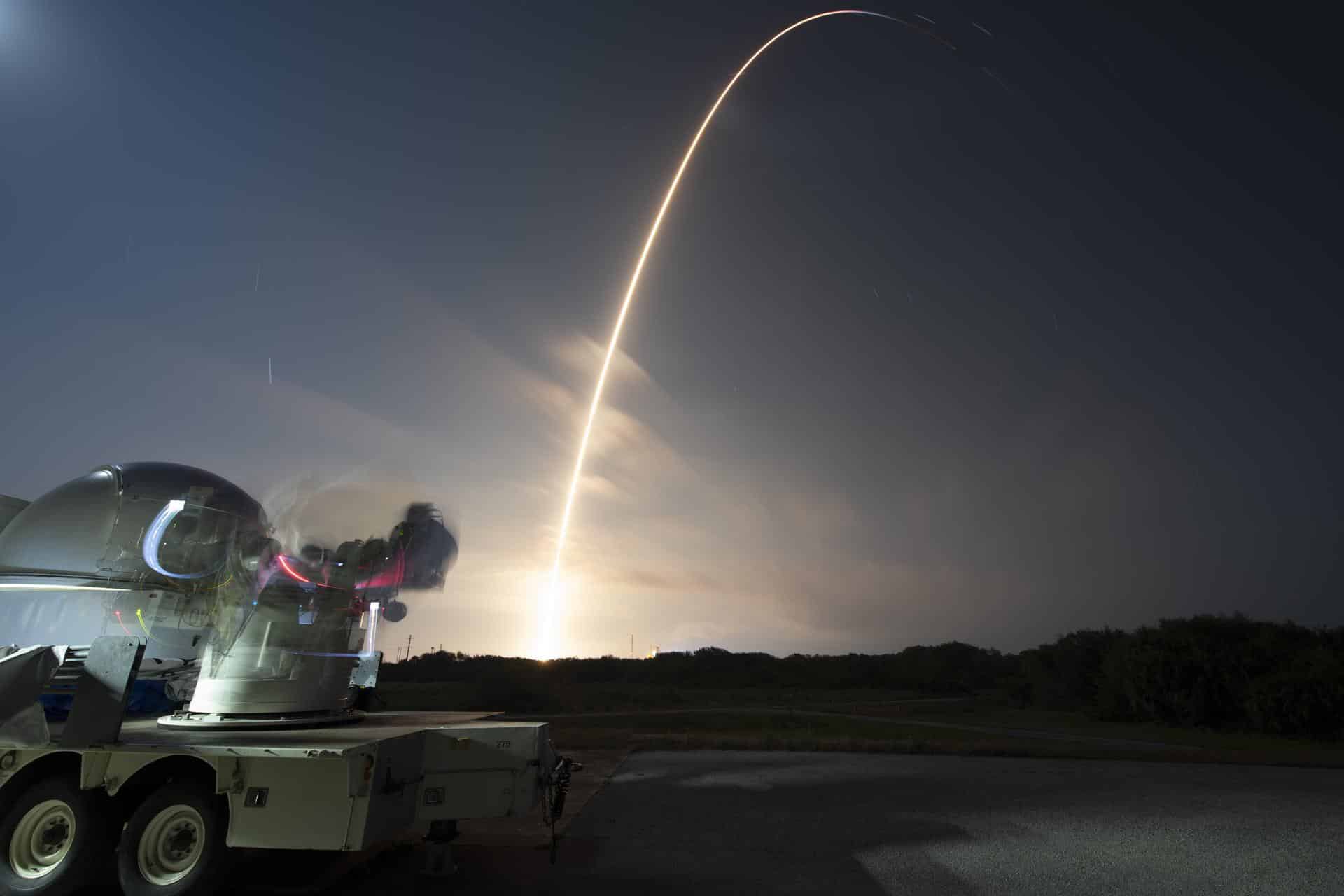By James T. McKenna
SpaceX launched its sixth operational human mission for NASA in March 2’s first moments, with a new Falcon 9 booster lofting four crewmembers from Florida in a flight-proven Dragon capsule to the International Space Station.
The Crew 6 mission under NASA’s Commercial Crew Program lifted off on time at 12:34 a.m. EST (5:34 a.m. UTC) from Kennedy Space Center’s Pad 39, after a smooth countdown followed by an equally smooth ascent to orbit. The booster’s first stage separated about 2 minutes 40 seconds after liftoff, with that part of the rocket returning to Earth to land on SpaceX’s recovery ship, Just Read The Instructions, in the Atlantic about seven minutes later. This was that booster’s first flight.
The vehicle’s single-engine second stage pushed the Dragon capsule, the Endeavour, into what ground controllers reported was a “nominal orbital insertion.” That set Endeavour and its four occupants on course for a 24-hour-plus journey to dock with the space station, orbiting about 262 miles (422 kilometers) above Earth, at about 1:17 a.m. EST on March 3, barring any glitches.
SpaceX first operational human mission under the Commercial Crew Program came with the Crew 1 launch on November 16, 2020. Crew 6’s launch came on the second attempt. A try early on February 27 was scrubbed minutes before liftoff due to problems with the flow of ignition primer to the Falcon 9’s nine Merlin engines. The primer, a combination of triethylaluminum and triethylborane (TEA-TEB), burns spontaneously in air. It ignites the Merlins’ kerosene-liquid oxygen mixture.
Endeavour previously carried three sets of astronauts to orbit. The first time was on May 2020’s Demo 2 (the first crewed Dragon flight) to establish SpaceX’s ability to fly such missions. That was followed by April 2021’s Crew 2 second operational mission and April 2022’s Axiom 1 first private astronaut launch.
On board Endeavour for this flight are the mission commander, NASA Astronaut Stephen Bowen; the mission pilot, NASA Astronaut Warren Hoburg; United Arab Emirates (UAE) Astronaut Sultan Al Neyadi, and Russian Cosmonaut Andrey Fedyaev. Hoburg, Al Neyadi and Fedyaev are to serve as mission specialists for this space station science expedition, conducting more than 200 experiments during their roughly six-month stay on orbit.
Al Neyadi is on course to become the first UAE citizen to fly on a long-duration space mission. His colleague, Hazza Al Mansouri, was launched in 2019 from Kazakhstan’s Baikonur Cosmodrome on an eight-day mission to the space station.
Crew 6 members will relieve the four Crew 5 members, NASA astronauts Nicole Mann and Josh Cassada, Japan Aerospace Exploration Agency (JAXA) Koichi Wakata and Cosmonaut Anna Kikina of Roscosmos have been on the orbiting station since October. They are due to return about March 9.
